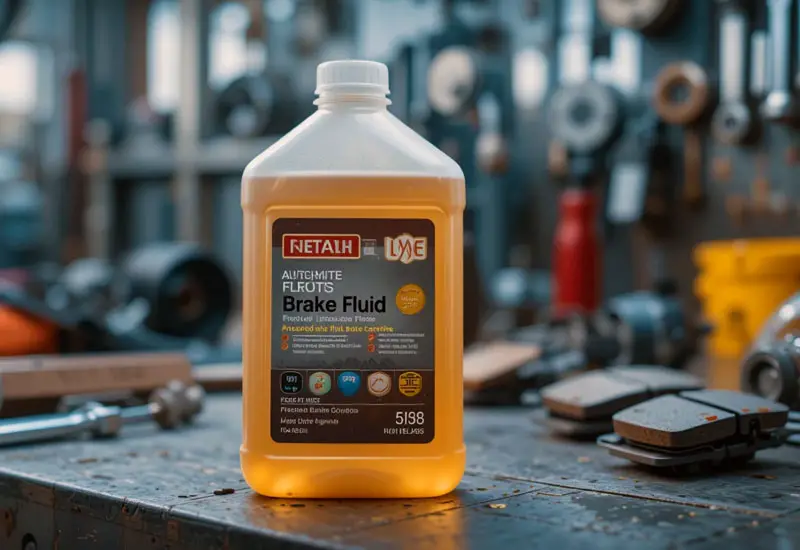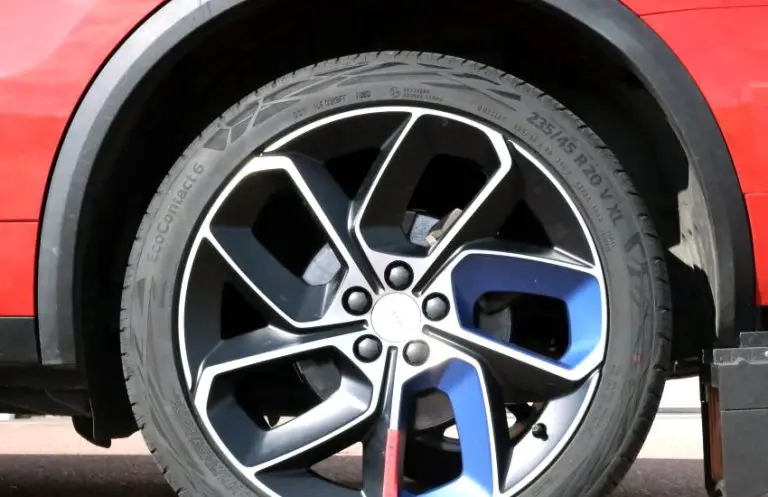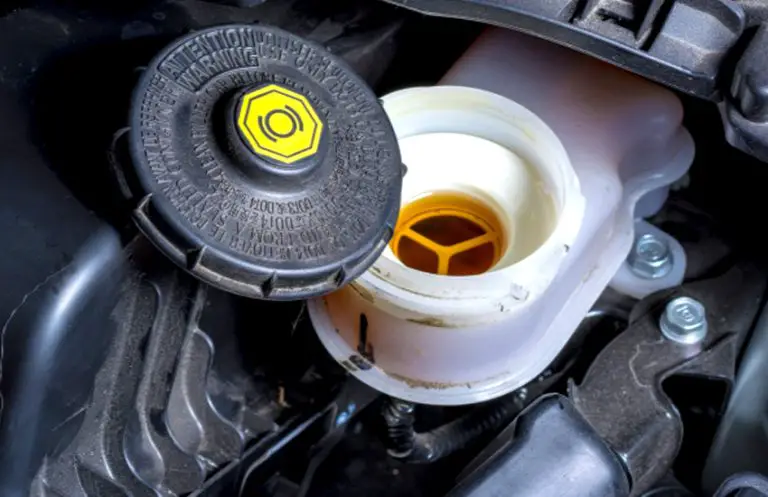Have you ever wondered if brake fluid, of all things, could be a secret acne treatment? It may sound strange, but there’s been some buzz around it. In this article, I’m going to dive into the science, myths, and potential risks of using brake fluid for acne. Let’s explore if there’s any truth to this unusual skincare tip or if it’s just a dangerous myth.
Understanding Brake Fluid and Its Properties
What is Brake Fluid?
Let’s start with the basics: brake fluid. It’s that essential fluid that makes sure your car’s brakes work. But did you know brake fluid is made up of some pretty intense chemicals that are critical for the function of your car? It helps transfer the force you apply to the brake pedal into pressure on the brake pads, which then slows down the wheels. Without brake fluid, your car’s braking system wouldn’t function.
Types of Brake Fluid: DOT, SAE, and More
Not all brake fluids are the same. There are several types, and knowing the difference could be helpful for anyone curious about their potential for acne treatments.
- DOT Fluid: This is the most common type of brake fluid. It’s known for its high boiling point, which helps prevent vapor locks in the brake system. DOT fluids are usually glycol-based and attract moisture.
- SAE Fluid: SAE is an older type of brake fluid, often used in certain types of vehicles. SAE fluids are mineral oil-based and generally more stable.
- Other Specialty Fluids: Some brake fluids are designed for high-performance cars or motorcycles. These can be synthetic and may have different chemical compositions.
Each type is made to do a very specific job for your car, but we have to remember these fluids are not made for human skin. If you were to think about using brake fluid for acne, that would be a whole different ballgame!
Chemical Composition of Brake Fluid
Now, let’s talk about what’s actually inside brake fluid. In many types, you’ll find a blend of various chemicals that might include:
- Glycol ethers: Used to reduce moisture and prevent corrosion.
- Polyglycol: Another compound that helps brake fluid resist moisture, which is essential in maintaining the integrity of the fluid in cars.
- Additives: Brake fluid sometimes contains chemicals to help prevent foaming or oxidation and keep the fluid from breaking down under extreme temperatures.
These ingredients are designed to perform at high temperatures and under high stress, which is far from the kind of conditions your skin experiences. So, is there any scientific reason to believe brake fluid could treat acne? Let’s look deeper.

Acne: Causes, Symptoms, and Treatments
What Causes Acne?
Acne, those annoying and often painful little pimples, blackheads, and cysts, are caused by a variety of factors. The main culprit is usually excess oil production in the skin. This can clog pores, leading to the development of pimples. But that’s not all—hormones, stress, diet, and even genetics can play a big part. And let’s not forget the role of bacteria, which can thrive in these clogged pores and cause infections.
So, when you’re dealing with acne, you’re basically facing a combination of factors: oil, clogged pores, and bacteria. But what if you could reduce some of these factors? That’s where acne treatments come into play.
Different Types of Acne
Not all acne looks the same. There are several different types, and each requires its own treatment. For example:
- Whiteheads: Small, flesh-colored bumps that occur when pores become completely blocked with oil and dead skin.
- Blackheads: These are open pores filled with oil, and the dark color comes from the oxidation of oil exposed to air.
- Cystic Acne: A more severe form of acne, cystic acne involves deep, painful lumps under the skin. This type often leaves scars if not treated properly.
Knowing the type of acne you’re dealing with can help you figure out the best course of treatment. Some people try various methods to treat their acne, including over-the-counter products, prescription medications, or even natural remedies. But could something like brake fluid actually work? We’ll investigate that next!
Common Acne Treatments
There are a ton of treatments available, so it can get a bit overwhelming. Here’s a quick rundown of some popular options:
- Over-the-Counter (OTC) Products: These are readily available in drugstores. Ingredients like benzoyl peroxide and salicylic acid are common in these products and can help reduce acne.
- Prescription Medications: For more stubborn cases, doctors might prescribe oral medications like antibiotics or stronger topical treatments like retinoids.
- Natural Remedies: Some people swear by natural ingredients like tea tree oil, honey, or aloe vera to treat acne. But these methods can vary in effectiveness.
- Skincare Routine: Having a consistent routine is key. Cleansing, moisturizing, and using targeted treatments can help maintain clear skin.
Now that we understand acne a little better, it’s time to tackle the big question: Can brake fluid help treat acne?
Can Brake Fluid Treat Acne?
Exploring Myths and Misconceptions
Okay, let’s get real here. The idea that brake fluid could be a treatment for acne might sound like something you hear on a weird YouTube channel, but there are a few people who have claimed this over the years. But let’s break it down scientifically and logically.
Potential Effects of Brake Fluid on the Skin
Now, if you’ve ever gotten a little brake fluid on your skin, you know it’s not something you should rub in like a moisturizer. Brake fluid is highly corrosive and designed to resist extreme temperatures, which means it can cause irritation, burns, and other skin problems if applied improperly. In fact, exposure to brake fluid could result in severe chemical burns, especially on sensitive areas like your face.
But even if brake fluid doesn’t directly harm the skin in all cases, let’s face it—applying it on your face just doesn’t seem like a safe choice. While the chemicals in brake fluid may have some cleaning properties, they’re designed to break down metals and resist heat, not to deal with acne.
Risks and Dangers of Using Brake Fluid for Acne
Here’s where the danger comes in: brake fluid isn’t formulated for human use. It’s designed to stay within a controlled, closed system in your car, not interact with human skin. So, even a small exposure can cause some serious damage, including:
- Chemical Burns: Brake fluid can cause skin irritation or burns if left on too long.
- Allergic Reactions: Some people might be allergic to the ingredients in brake fluid, leading to severe reactions like rashes, swelling, or redness.
- Eye Irritation: Getting brake fluid near your eyes can cause irritation or even permanent damage.
- Long-term Skin Damage: Repeated exposure could result in skin issues like dryness, peeling, and scarring.
Safe and Effective Acne Treatments
Now that we know brake fluid isn’t the way to go, what are the safe and effective treatments for acne? There are plenty of tried-and-tested methods to help manage acne:
- Topical Treatments: Benzoyl peroxide and salicylic acid are great choices for treating acne.
- Oral Medications: If topical treatments aren’t working, doctors might prescribe oral antibiotics or hormone therapies.
- Good Skincare Routine: Cleanse your face twice a day and keep your skin moisturized to prevent excessive oil buildup.
- Healthy Diet: Eating a balanced diet rich in vitamins and antioxidants can support skin health.
- Consult a Dermatologist: If you’re dealing with severe acne, it’s best to consult a professional for personalized treatment.
I hope this clears up any confusion about whether brake fluid can be used for acne. Spoiler alert: it’s not a good idea! Stick to proven acne treatments that are designed for skin care, and you’ll be much better off in the long run. Stay safe, and take good care of your skin!
Frequently Asked Questions
Can brake fluid really clear up acne?
No, brake fluid is not a safe or effective acne treatment. It can cause severe skin irritation, burns, and long-term damage.
Do I need to use strong chemicals for acne treatment?
Not necessarily. While stronger treatments may be needed for stubborn acne, gentle over-the-counter products with ingredients like benzoyl peroxide or salicylic acid are usually effective.
Is it safe to put brake fluid on my skin?
No! Brake fluid is not designed for skin contact and can cause burns, irritation, and other harmful effects.
Can I use home remedies for acne instead of medicine?
Some home remedies can help with mild acne, but it’s always best to consult a dermatologist if you have persistent or severe acne.
Do I need to avoid all oils if I have acne?
Not all oils cause acne. Some oils, like jojoba or tea tree oil, can actually be beneficial for acne-prone skin. Avoid heavy oils or comedogenic oils that clog pores.
Can stress really make acne worse?
Yes, stress can increase the production of hormones that may trigger acne flare-ups. Managing stress can be a helpful part of acne prevention.
Is it true that diet causes acne?
Diet can play a role, but it’s not the main cause. Foods high in sugar and dairy may exacerbate acne for some people, but a healthy, balanced diet is key.
Do I need to wash my face multiple times a day for acne?
Washing your face twice a day (morning and night) is usually sufficient. Over-washing can dry out your skin and lead to more breakouts.


